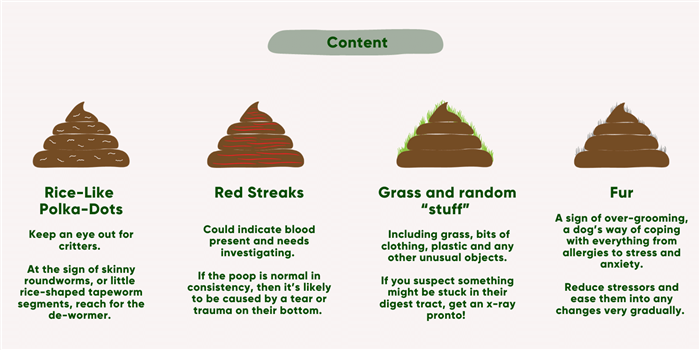Does Rice Affect Taurine Levels In Dogs?
When dog owners see blood in their pup’s poop, they often get alarmed. While this is obviously a symptom of inflammation and a good time to get to the vet, a tiny bit of blood is generally run for the course when dealing with large-bowel diarrhea. Here’s why. In general, the colon has a dual purpose: Put the stool away until it’s time to go.

The same applies to elderly dogs. A doggie which is already very big tends to suffer from cancer. With the advance of medicine, pets live longer, but are more likely to have tumors. If he vomits blood because of one of them and you do not bring him to the vet, you also run the risk of him dying by being weak.
Gooey Diarrhea in Dogs and Cats from Colitis (Colon Inflammation)
Symptoms can vary from one puppy to the next. So how do you know when your puppy has diarrhea because of teething? It begins with ruling out other potential causes for the digestive issue.
Try feeding half a cup or so to stimulate movement within the gastrointestinal tract. Sounds weird, but it works!
Having given her full attempt in following applications like Beach Body, Slim-Fast, and Weight Watchers, the outcomes have been under marginal. When placed bodily to the take a look at, Sarah couldn’t maintain up.
Healthline has strict sourcing guidelines and relies on peer-reviewed studies, academic research institutions, and medical associations. We avoid using tertiary references. You can learn more about how we ensure our content is accurate and current by reading our editorial policy.
I hope that this article didn’t frighten all the dog owners out there too much. However, it’s important to be aware of the potential consequences that eating cat poop and litter can have. Follow the advice in this post to prevent that from happening in the first place.
Diarrhea is a common disease that varies in duration and frequency from dog to dog. Diarrhea is a sign that your dog has eaten something wrong such as too much grass. That specific food cannot digest in the gut and causes diarrhea in the dog. Dog’s jaws are strong enough for crushing and tearing the food. Salivary enzymes help to kill bacteria; therefore, they can tolerate those foods that are not digested by humans. Food travels rapidly down the dog’s esophagus and enters into the stomach. Most of the digestion takes place in the stomach. Dog’s stomach acids are 3 times stronger than a human stomach, so they can digest food that the human stomach can’t digest. Diarrhea may be the result of the dog eating from the trash that upset his tummy. Dogs may have the roundworm or recent diet change can lead to diarrhea. These are the ordinary cases of diarrhea. But if any other symptom arises with diarrhea, you have to immediately check the veterinarian for this purpose. Most of the time diarrhea is treated quickly but sometimes it can be difficult to treat.
Just plain sick and tired? Try our canine anemia PCR panel or our feline anemia PCR panel — detect and differentiate multiple anemia pathogens from 1 blood sample.
There are over-the-counter medications that can slow the digestive tract’s movements and also reduce diarrhea and cramping. Always talk to your doctor before taking any of these medications.
If diarrhea continues, another chat with the veterinarian and some lab work may be necessary, but many common diarrhea problems resolve themselves with minimal veterinary care.

Finally, infections can also cause orange diarrhea.
My advice? Try to schedule a professional grooming appointment in the days prior to surgery. Ask for a full “sanitary trim” of the hair in their genital area, which can harbor bacteria when hair is left too long. If your pup has a fluffier coat, consider clipping it shorter than usual. This will help reduce matting during recovery, as you should avoid any excessive brushing that could pull at skin and open stitches. Nobody ever said they had too many grooming wipes on hand, either.
If your stool isn’t absorbing enough bile, it may be light gray or tan. This can happen when you have a short-term case of diarrhea or if you have a more serious liver condition. Sometimes babies have blocked bile ducts, which leads to loose orange or grayish stool.
Earle Nave is a wildlife conservationist and television personality. He is 27 years old, and he has dedicated his life to helping animals. He has been featured on numerous TV shows, and he is one of the world's leading experts on animal behavior. He has worked with some of the world's most endangered species, and he has helped to protect many of them from extinction. Earle is also an accomplished author, and he has written several books about wildlife conservation.

